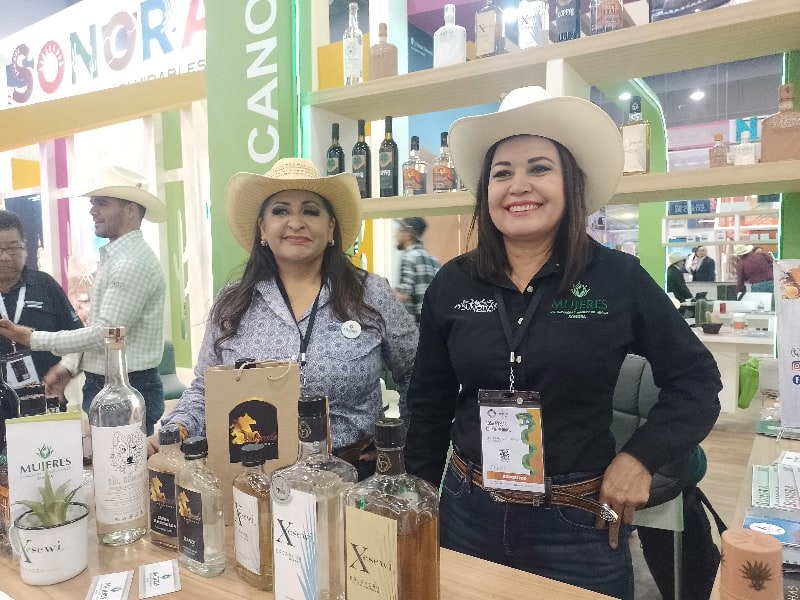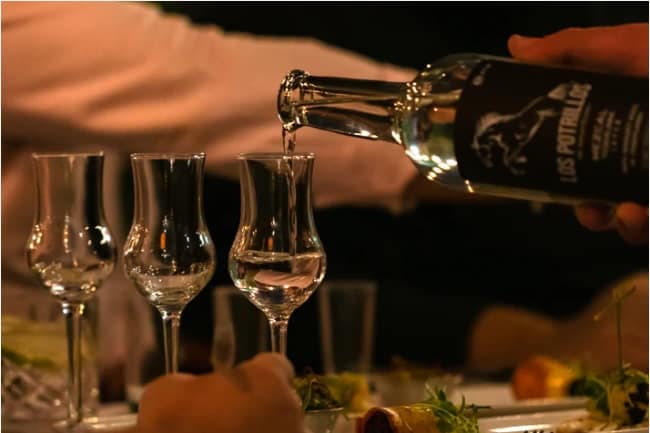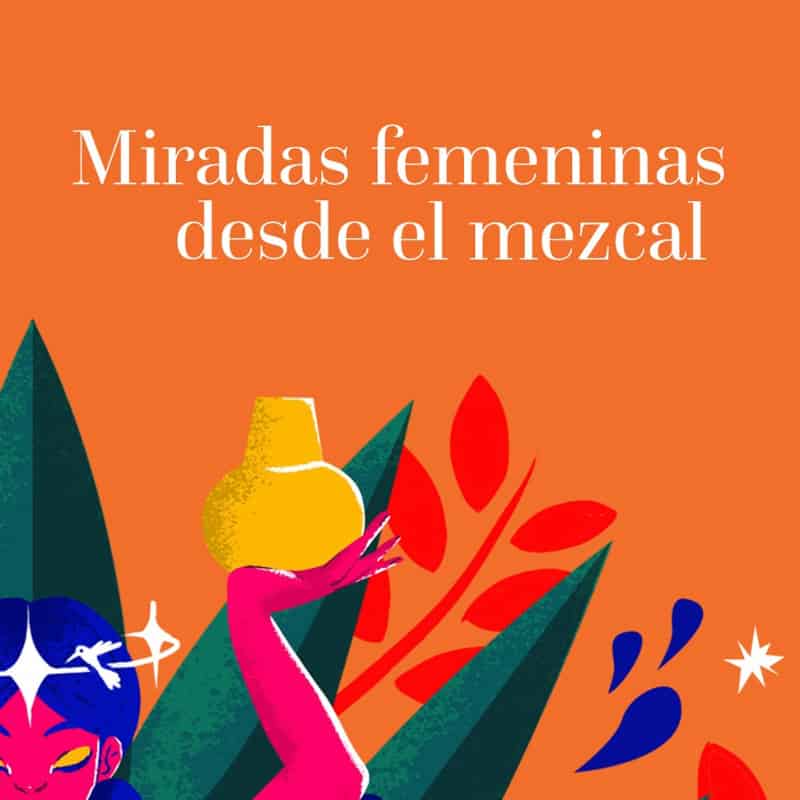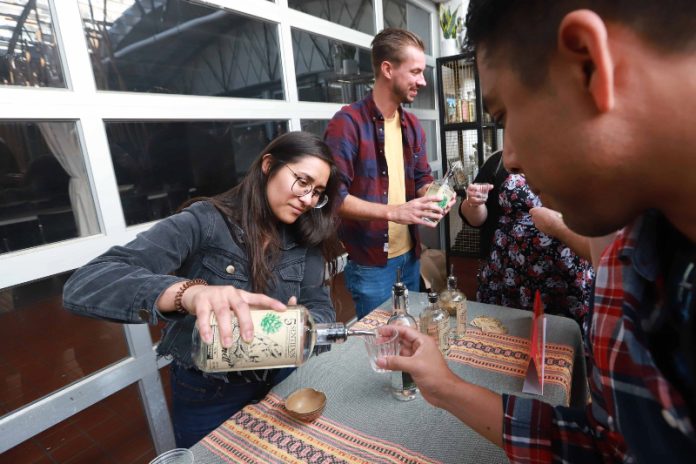The recent rise of mezcal has been meteoric, and women are finding opportunities with the beverage’s chic status in Mexico City and beyond. Traditionally, the mezcal world has been male-dominated, with women playing a secondary role at best in production and sales.
Today, several savvy women see opportunities to create new rules. In less than a decade, they have had a significant impact on marketing and distribution, providing support to producers and shaping mezcal’s image and future demand.

The overall market is growing, and some producers in Mexico have managed to create regional and national brands, following the lead of tequila. However, most mezcal is still made by small operations that do not even have a label. This suits certain connoisseurs just fine, as they are turned off by the glitz and industrialization that has overtaken tequila. The problem is bringing together small, isolated producers with superior products, with drinkers willing to pay a better price for an authentic experience.
Women with marketing, legal, bureaucratic and public relations skills are looking to bridge this gap, not just to sell more mezcal but also to avoid the problems of too much demand. They have created businesses and non-profit organizations combining their professional training and connection with their personal “discoveries” of mezcal at some point in their lives.
How they got started
Paloma Rivera’s relationship with mezcal began while still a student studying ecologically friendly and sustainable business in Mexico City. She learned from mezcaleros as part of research projects, which led to selling mezcal locally and at small events – the start of Tianguis Mezcalero. Eventually, she shifted to representing rural mezcal-making families at retail outlets and larger cultural events in Mexico City. In 2019, she began creating her own events for networking, consumer education, and fun.

Maria Elena Aguiñaga Ortega’s Comuna 52 is a more recent addition to this field but operates similarly. She planned an export operation, taking advantage of her work at the National Bank of Commerce and a brother living in France. After researching several traditional products, she finally settled on mezcal. Aguiñaga and her family now promote a catalog of mezcales from all over Mexico, both inside and outside the country.
Laura Espinoza’s road to bacanora (Sonora’s version of mezcal with its own appellation of origin protection) was really a return to her roots. Due to prohibitions and a “moonshine” reputation, bacanora was not part of her life growing up, even though she hails from the town the spirit is named after. However, instead of forming a for-profit company, Espinoza’s efforts combine her political and business connections, founding the non-profit Sonora chapter of the Association of Women of Bacanora and Maguey of Mexico. Although Espinoza’s organization is the most female-specific, she has a holistic view, realizing that the entire bacanora-producing community of eastern Sonora needs to cooperate to help lift this impoverished area.
Susan Coss did not decide that she liked mezcal until she tried it a third time, finding someone in Oaxaca who truly knew where to find a good product. Since 2010, she has been traveling the back roads of Mexico looking for new mezcales to bring to the United States. Mezcalistas operates primarily through events like Mexico in a Bottle in cities nationwide.
These women have chosen a challenging task. “The mezcal market is changing rapidly in both product and how it is marketed,” says Rivera. “…you have to get the attention of people who are always in a hurry and you must educate them why mezcal is worth a higher price.” All have developed similar ways of meeting that challenge.

Elements in common
Most importantly, these women are passionate about promoting and conserving small-batch, regional mezcales made the traditional way. These products are the most authentic but also in the most danger of disappearing or being usurped by larger companies. All look to conserve and improve life for traditional producers by getting better prices for their products so that they can resist the temptation to change or modernize their operations. One absolute here is that the mezcales are promoted under the names of their producers. You won’t find them slapping their own names on bottles – or worse – those of U.S. celebrities (as has happened with tequila).
Instead, these organizations work to reach educated consumers. Specialty mezcal is very much a niche market that needs loyal buyers who understand and appreciate that they are buying much more than an alcoholic beverage; they are buying culture. Events are a vital part of this education, as they provide information, fun and the opportunity to try different flavors. Comuna 52 and Mezcalistas have blogs (in Spanish and English, respectively) with the stories behind the mezcales and the regional cultures where they are produced. Tianguis Mezcalero partnered with other women in production and sales to create the book “Miradas femeninas desde el mezcal“ (Spanish only).

I should mention that although not a feminist issue, all of the women I interviewed had concerns about the sustainability of this kind of mezcal. Tequila has been an example of what to emulate and avoid. Comuna 52 prefers mezcales made from wild agave, as “… being surrounded by other plants affects the quality of the agave,” but this may not be sustainable as demand continues to grow. Espinoza’s organization promotes a “cut one, plant two” ethic among bacanora producers, realizing Mother Nature needs a hand now and in the future.
It remains to be seen if and how the mezcal industry in Mexico can develop, avoiding the issues of identity, sustainability and mundane commercialization that have plagued tequila. But perhaps the participation of women from diverse regions of the country gives mezcal a better chance than tequila has had in an almost exclusively male domain in a single region.
Leigh Thelmadatter arrived in Mexico over 20 years ago and fell in love with the land and the culture in particular its handcrafts and art. She is the author of Mexican Cartonería: Paper, Paste and Fiesta (Schiffer 2019). Her culture column appears regularly on Mexico News Daily.
